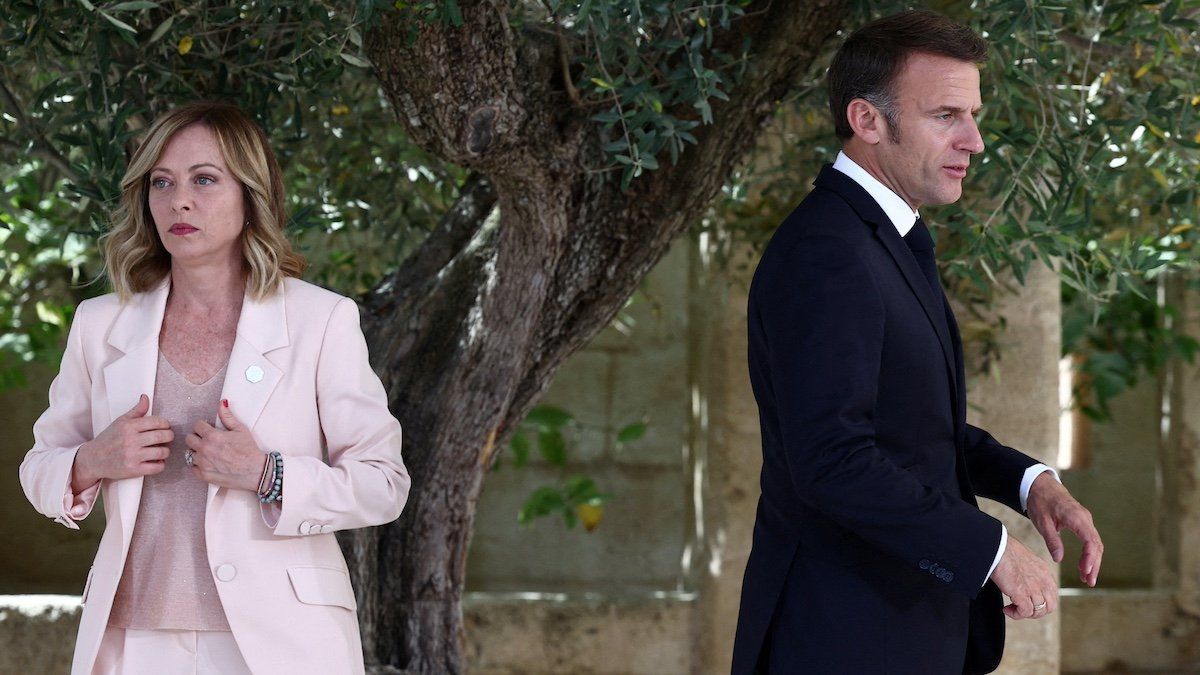They’re calling it the death stare: In a clip that went viral, Italian Prime Minister Giorgia Meloni was caught glaring at French President Emmanuel Macron at the G7 summit late last week.
The two leaders clashed afterItaly demanded the removal of a specific reference to “safe and legal abortion” from the final G7 statement. When Macron told reporters he regretted the change,Meloni shot back, saying he was out of touch with his voters and accusing him of campaigning at the summit.
Both later downplayed the incident, but the “death stare” moment spotlighted an ideological divide that is central to the French election. The progressive Macron is fighting for his political life against the right-wing National Rally party of Marine Le Pen and her protege, Jordan Bardella.A left-wing coalition has now formed — including a surprise comeback for former President François Hollande — to prevent the right from taking power, but the polls still haveRN in the lead.
In an attempt to woo moderates and the financial sector, Le Pen now says she would work with Macron as president, a process known as “cohabitation,” in which each would control certain sectors of policy. We’ll know on June 30 whether voters – and investors – will be swayed.